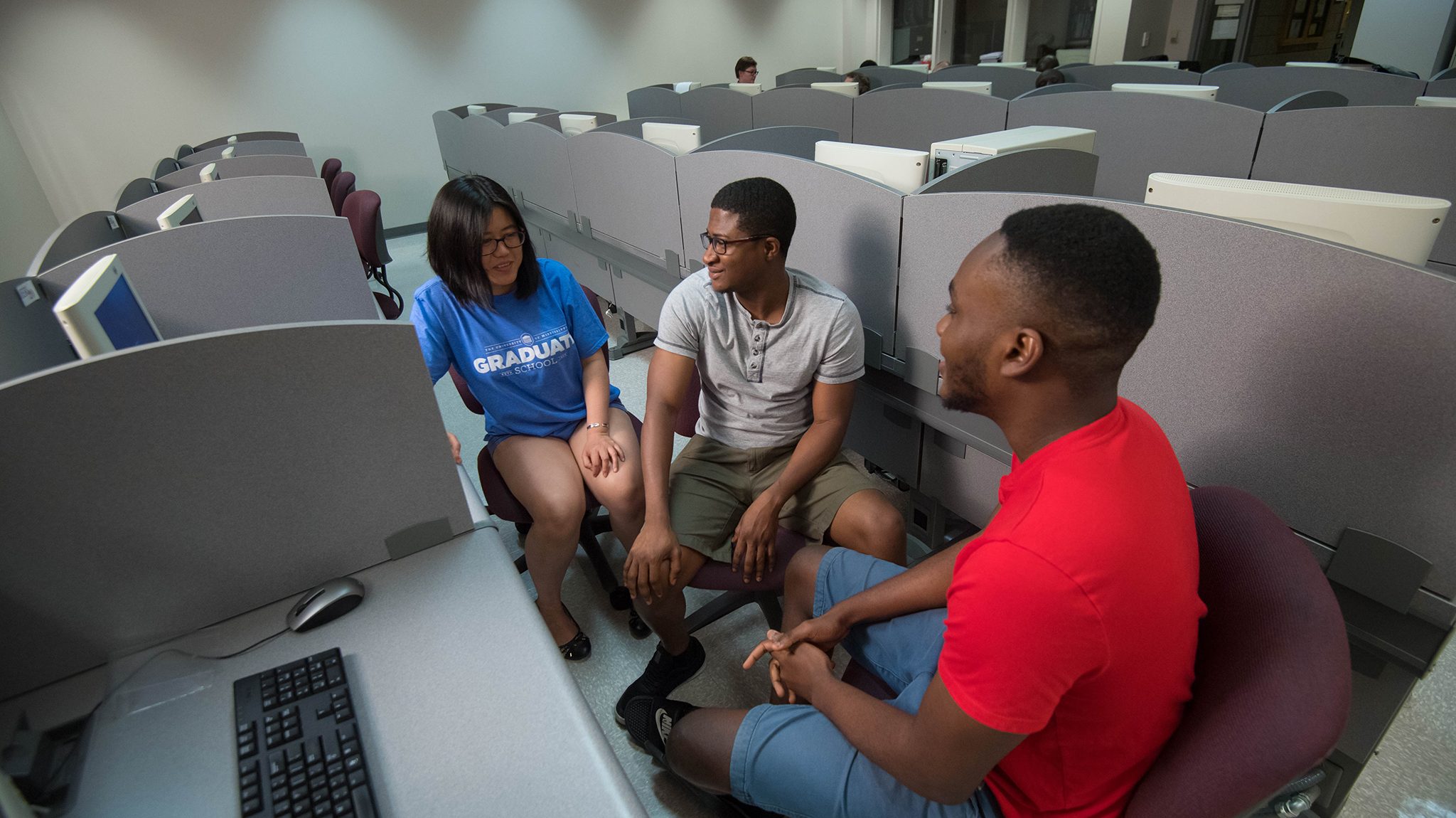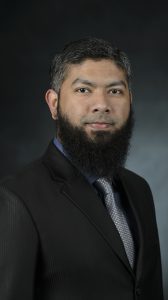
Undergraduate students involved in the Mississippi Experimental Research Laboratory have been using the summer to hone their research skills. Photo by Kevin Bain/Ole Miss Digital Imaging Services
Thanks to an internal grant to the University of Mississippi’s Department of Computer and Information Science, five computer science majors are conducting paid, faculty-mentored projects as part of the new Ole Miss Summer Undergraduate Research Experience.
Each student is spending 10 weeks conducting a data science-themed research project. By the end of the summer, all of the students should be able to describe the fundamental concepts and techniques of data science, analyze real-world problems and model them for application of data science techniques, and document and effectively communicate methodology, results and observations of the project.
Naeemul Hassan, UM assistant professor of computer and information science, wrote the grant proposal that led to the funding, and is serving as the mentor for one of the student projects. Hassan and Amrit Poudel, a junior from Nepal, are developing tools to identify online cries for help from those who may have experienced sexual harassment or mistreatment.
The duo has collected more than a million sexual harassment-related tweets from Twitter. Using natural language processing techniques, they have identified 15,000 of the tweets as sexual harassment outcries.
“The problem is the current design of the social network systems does not have any mechanism to bring these harassment reports to the attention of authorities or support service providers,” Hassan said. “We are working on developing tools to make social media a more supportive place for victims to talk about what they have experienced.”
Four other students are conducting separate mentored research projects under the summer data science program. Under the mentorship of professor Conrad Cunningham, Hao Zhou, a junior from China, is developing a tool that can take a common input format and create documents in multiple output formats that are accessible to a wide range of readers – including those with disabilities.
Under the guidance of professor and chair Dawn Wilkins and professor Yixin Chen, seniors Garrett McClure of Madison, Mississippi, and Abigail Garrett, of Birmingham, Alabama, are evaluating and developing tools to reduce the size of large unwieldy datasets to just the most essential features needed for the task at hand. And senior Khoa Anh Tran of Vietnam is doing research toward the development of virtual reality visualization tools for three-dimensional data; this project is being mentored by assistant professor Adam Jones.

Naeemul Hassan, assistant professor of computer and information science, is directing student Amrit Poudel as part of an Undergraduate Summer Research Grant he received for his Data Exploration and Research Laboratory. Photo by Marlee Crawford/Ole Miss Digital Imaging Services
“The mentors have a diverse set of data science expertise including machine learning, artificial intelligence, natural language processing, software architecture, data mining and virtual reality,” Hassan said.
“As artificial intelligence, machine learning and virtual reality are being incorporated in an increasing number of knowledge domains and practical applications, we can only imagine the demand of data science increasing in the foreseeable future.”
Indeed, for the third year in a row, data scientist has been named the best job in America, based on earning potential, job satisfaction and the number of job openings. according to Glassdoor’s 50 Best Jobs in America for 2018 list.
The funding for this summer’s program was in the form of a competitive internal seed grant, with initial monies coming from the Provost’s Office and matching funds provided by the School of Engineering and the CIS department.
“We believe that the sooner we can expose students to the research and applications in their chosen fields, the more likely they are to continue research in graduate school,” said Greg Easson, UM professor of geology and geological engineering and associate dean for research and graduate programs for the School of Engineering.
“The Department of Computer and Information Science was early into undergraduate research, having already developed the C-REX (Computer science Research Experience) program last year. With this support from the Provost’s Office, they have been able to do even more with students.”
To extend the data science program for future summers and students, Hassan and his collaborators in the department have their eyes on several external funding opportunities, including the National Science Foundation’s Research Experiences for Undergraduates program.
Meanwhile, the next steps will be guiding this summer’s students in writing and disseminating their discoveries and prototypes through poster presentations, conference presentations or peer-reviewed journal articles. Look for more on these students and their project outcomes in future editions of this newsletter.